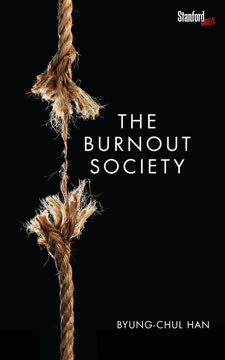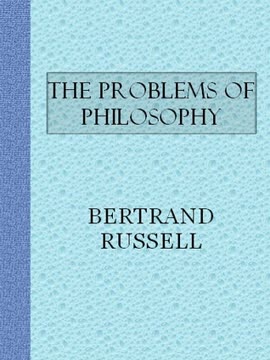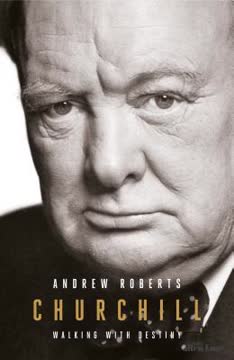Key Takeaways
1. Philosophy is a rigorous, ambitious science, starting from common sense.
Philosophy isn’t something totally alien to us; it’s there already in our lives, in trivial ways and important ones.
Philosophy's ambition. Philosophy seeks to understand the fundamental nature of everything – existence, knowledge, mind, reality, value. This hyper-ambition distinguishes it, aiming for the most general understanding possible, often overlapping with the foundational questions of science.
Starting point: Common Sense. Like all inquiry, philosophy must begin with the knowledge, beliefs, and methods we already possess – our common sense. While the goal is to go far beyond common sense, it remains the essential starting point and a crucial check on philosophical theories.
A non-natural science. The rise of natural science created a crisis for philosophy's method. However, philosophy, like mathematics, is a science that relies on thought rather than experimentation. It is a non-natural science, applying systematic, critical thinking to questions of stupendous generality.
2. Disputation and critical engagement are core philosophical methods.
Intellectual inquiry does not flourish under those conditions. It requires relevant disagreements to be got out into the open, not muffled up.
Testing ideas through debate. Philosophical ideas are rigorously tested through disputation, much like an adversarial system in law or formalized logic games. This critical back-and-forth, seen in academic Q&A or written dialogues, exposes weaknesses and strengths in arguments.
Beyond mere combat. While sometimes appearing gladiatorial, philosophical discussion also involves cooperation. Participants aim to refine ideas, suggest new evidence, or explore applications, even when disagreeing fundamentally. The goal is collective progress towards truth, not just winning.
Historical roots. The tradition of disputation is ancient, formalized in medieval obligationes and evident in Plato's dialogues. This method ensures ideas are given a full defense and allows the wider philosophical community to judge which arguments are most compelling.
3. Clarifying terms is essential but serves broader theoretical goals.
Often under the influence of Wittgenstein, some philosophers take themselves to be doing pure conceptual clarification, untainted by theoretical activity such as advancing hypotheses to be confirmed or falsified by future evidence.
"It depends on what you mean". Clarifying terms is a common philosophical move to resolve apparent disagreements or expose ambiguities. This focus on meaning became central in the 20th century, sometimes seen as philosophy's primary task (the linguistic/conceptual turn).
Concepts vs. Conceptions. Distinguishing shared concepts (like dictionary definitions) from personal conceptions (all beliefs associated with a term) highlights the difficulty of pure clarification. Words like 'woman' show how complex and controversial defining terms can be, especially when cut off from theoretical or practical needs.
Clarification serves theory. Clarification is not an end in itself but a tool for better theorizing. Like mathematics, which relies on undefined terms within a strong axiomatic theory, philosophy needs clear terms embedded in robust theories to make reasoning rigorous and expose errors, rather than aiming for mythical indubitability.
4. Thought experiments are vital tools for exploring possibilities and testing theories.
Dharmottara’s example is a thought experiment. We imagine a trick case of reasonable true belief. The target philosophical theory predicts that it will be a case of knowledge. But, independently of the theory, it is clearly not a case of knowledge.
Imagining to test theories. Philosophers use imaginary scenarios, or thought experiments (like Dharmottara's fire/flies case or Thomson's violinist), to test the consequences of philosophical theories. These cases reveal whether a theory's predictions align with our independent judgments about the scenario.
Exploring possibility. Thought experiments are particularly useful for testing claims about what is possible or necessary. Unlike real-life experiments, they don't need to be actualized to show possibility, relying instead on our capacity to imagine realistically and judge whether a scenario could occur.
Imagination as knowledge. Knowing by imagining is not crazy; it's a fundamental human capacity for exploring hypothetical possibilities, crucial for planning and survival. Philosophical thought experiments are a more systematic application of this capacity, though our judgments about them, sometimes called 'intuitions', are fallible and subject to biases.
5. Philosophy evaluates rival theories using abduction (inference to the best explanation).
The methods philosophy needs for choosing between rival theories need not be so different from the more theoretical methods of natural science. We want the theory that best explains whatever evidence we can get.
Beyond simple refutation. Philosophical theories, like scientific ones, are rarely tested in isolation. They are compared against rivals (e.g., physicalism vs. dualism vs. panpsychism) to see which provides the best explanation for the available evidence, including the results of thought experiments.
Abduction in practice. Inference to the best explanation, or abduction, is the method of choosing the theory that is simplest, most informative, general, and unifying, while fitting the evidence. This is crucial because multiple theories can be logically consistent with the data, but some are arbitrarily complex or uninformative.
Avoiding overfitting. Abduction helps philosophers avoid overfitting their theories to specific judgments about thought experiments, which can be fallible. Prioritizing simplicity encourages critical evaluation of individual judgments and leads to more robust, stable conclusions, similar to how scientists prefer simpler equations that fit data more roughly.
6. Deduction is crucial for exploring theoretical consequences, not just proving premises.
In most areas of philosophy, the sort of systematic, deep, general theory to which our understanding most aspires is the least likely to be deducible from obvious premises.
The role of logic. Philosophers frequently use deduction, where the conclusion follows logically from the premises. While proofs in mathematics are chains of deduction from axioms, philosophical arguments rarely deduce major theories from obvious starting points.
Deducing from theories. Deduction's primary role in philosophy is drawing out the consequences from theories, not necessarily to them. This is vital for testing theories against evidence (like thought experiments) and for explaining phenomena by showing how they follow from general principles.
Clarity and risk. Precise, clear theories have more deductive power and explanatory reach but are also more vulnerable to refutation if they lead to inconsistencies or false consequences. Obscure theories, while seemingly bold, are often unrefutable and lack genuine deductive or explanatory power.
7. Logic is a powerful, non-neutral tool for philosophical inquiry.
Classical logic is a good theory of the most abstract and general features of the real world. It has no transcendental justification, no proof that ultimately no challenge to it makes sense. It needs no such justification.
Logic's philosophical commitments. While often seen as a neutral tool, the fundamental principles of logic themselves are philosophical commitments. Principles like the Law of Excluded Middle or the reflexivity of identity have been challenged on philosophical grounds, often tied to deep metaphysical views about time or paradox.
Rival logics. Debates about logical principles are not arbitrary; they involve comparing rival logical systems (like classical vs. dialetheist or quantum logic) using abductive criteria. Classical logic is justified by its simplicity, elegance, unifying power, and extensive testing across millennia of scientific and mathematical practice.
Extending logic. Beyond classical logic, branches like modal logic (the logic of possibility and necessity) are directly relevant to philosophical questions. Debates within modal logic, such as the necessity of existence, are philosophical disputes evaluated by working out the consequences of rival hypotheses and comparing their theoretical virtues.
8. The history of philosophy is a vital resource for contemporary problems.
At any time, only a limited range of ideas are under discussion in philosophy. Knowing more of its history expands one’s resources.
More than just history. Unlike science, philosophy deeply engages with its past. Studying the history of philosophy is not just historical scholarship but a way of doing philosophy, understanding past thinkers' ideas as living systems of thought relevant today.
Recognizing assumptions. Engaging with past philosophy, which often operated under different assumptions than our own, helps contemporary philosophers identify and question their own unexamined starting points. This "culture shock" is crucial for intellectual self-awareness and progress.
Track record of ideas. The history provides a valuable record of how philosophical ideas have been developed and tested over time. Seeing the repeated struggles and failures to make certain ideas work (like the verification principle) provides strong evidence against their viability, guiding contemporary research away from degenerating programs.
9. Philosophy learns and collaborates extensively with other disciplines.
None is soundproofed from the rest. Each learns from others. Creativity often involves combining ideas and knowledge from different areas. Philosophy is no exception.
Interdisciplinary engagement. Philosophy is not isolated but learns significantly from other fields like history, social anthropology, linguistics, psychology, economics, computer science, biology, and physics. This engagement enriches philosophical inquiry and provides new perspectives and data.
Mutual influence. The influence is often bidirectional. Philosophers have contributed foundational concepts and frameworks to fields like linguistics (semantics/pragmatics), economics (decision theory/epistemic logic), and computer science (logic, mind-body analogy).
Shared questions and methods. Many fundamental questions (e.g., about time, mind, rationality, language) are shared across philosophy and other disciplines. Collaboration, often using similar abstract or mathematical methods (like model-building), is increasingly common and fruitful, blurring traditional boundaries.
10. Model-building is a key method for understanding complex philosophical subjects.
Instead of seeking universal laws about complex systems, they build simplified models of them.
Beyond universal laws. For complex systems like humans, the traditional scientific goal of universal, exceptionless laws is often unachievable. Both natural science and philosophy are increasingly adopting a model-building methodology instead.
Simplified representations. Models in philosophy (like those in epistemic logic, probability theory, or semantics) are simplified, often mathematical or logical, representations of reality. They abstract away messy details to isolate key features and analyze their behavior rigorously.
Learning from models. By manipulating and analyzing these simplified models, philosophers can gain insights into the behavior of real-world complex systems, even if the models are technically "false" due to their idealizations. Progress is measured by building better models that explain more phenomena and handle counterexamples more adequately than their predecessors.
Last updated:
Review Summary
Doing Philosophy receives mixed reviews, with an average rating of 3.68/5. Readers appreciate its overview of philosophical methodology and defense of philosophy as a distinct science. Many find it accessible and well-organized, praising its approach to analytical thinking. Some criticize its one-sided analysis and lack of coverage for certain philosophical branches. Reviewers generally recommend it as an introduction to contemporary analytic philosophy, though some find parts overly technical. The book is valued for its insights into philosophical methods and their similarities to scientific inquiry.
Similar Books










Download PDF
Download EPUB
.epub digital book format is ideal for reading ebooks on phones, tablets, and e-readers.





